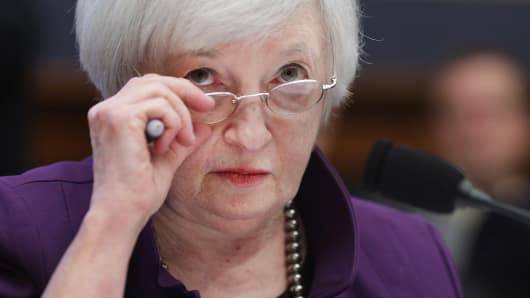But even without passage, the message to the Federal Reserve is clear: While former Fed Chairman Ben Bernanke could not anticipate that the Fed would be politically vilified for "bailing out" Wall Street by exercising its traditional power as lender of last resort, this prospect will be abundantly clear to the next Fed chair who has to deal with a crisis — and even clearer to the market.
This political environment reduces the likelihood that the Federal Reserve will respond quickly and decisively to an emerging financial crisis.
Congress has reason to be concerned about additional Federal Reserve transparency. The Federal Reserve needs to establish a clearer framework for exercising its lender of last resort powers — it could well learn a lot from the British system in this regard. The Fed has taken a small step in that direction by recently clarifying certain of its emergency lending powers.
But the need for additional transparency does not justify the passing of legislation that would expose our financial and economic system to collapse.
Commentary by Hal S. Scott, a professor at Harvard Law School and the director of the non-profit Committee on Capital-Markets Regulation. He is also the author of the law-school textbook "International Finance: Transactions, Policy and Regulation" and "The Global Financial Crisis." Follow him on Twitter @HalScott_HLS.






